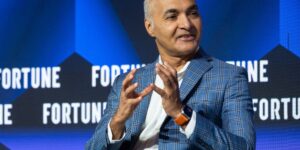Syngenta CEO Jeff Rowe is incorporating AI and taking inspiration from timeless classics to help feed 8 billion people
Today Fortune speaks with Jeff Rowe to learn more about Syngenta’s peculiar ownership structure, his farmer outfits and his love for the all-American John Deere.
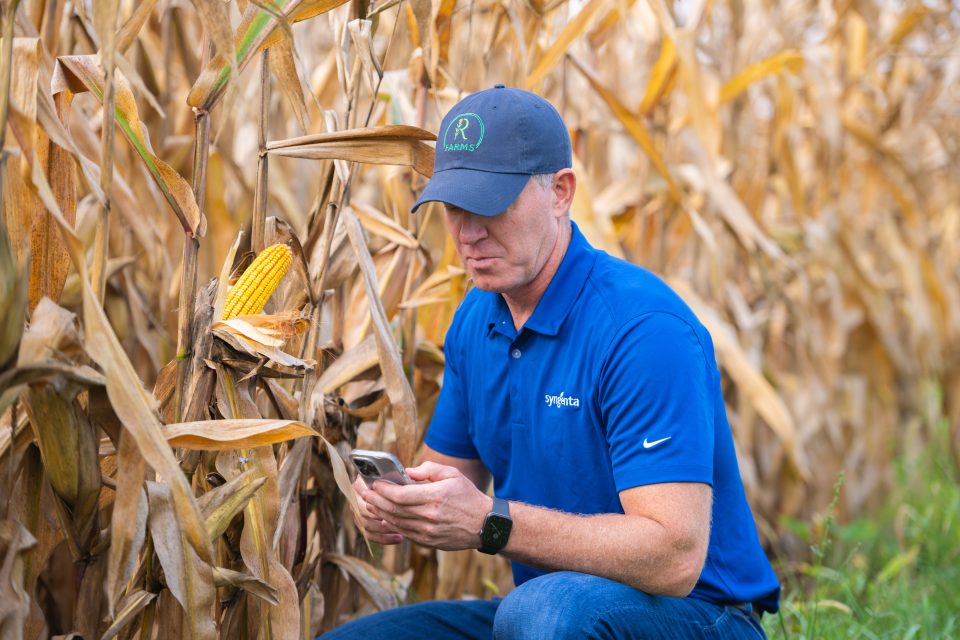
CEO Agenda provides unique insights into how leaders think and lead and what keeps them busy in a world of constant change. We look into the lives, minds and agendas of CEOs at the world’s most iconic companies.
As CEO of Syngenta, one of the world’s leading agricultural companies, Jeff Rowe has to tread carefully. The chemicals Syngenta produces have helped agricultural yields grow enough in the past decades to feed a world with 8 billion people. But like its competitors, including Monsanto and Bayer, controversy over the fertilizers Syngenta produces is never far away.
Unusually, Syngenta is a Western company fully owned by Chinese state-owned enterprise, Sinochem. That peculiar ownership structure, however, poses more challenges today than it did a few years back when China and the West were still happily entangling their economies.
It took months of e-mails, calls and an informal gathering at Davos before Rowe’s team felt comfortable taking part in an on the record interview for Fortune.
100+
The number of countries Syngenta operates in.
Though he is a lawyer by training, Rowe has become a farmer at heart in his decades-long career at agricultural companies such as DuPont Pioneer and Syngenta. He talks fondly of wearing farmer outfits on field trips, or his love for the all-American John Deere company, a favorite among many American and global farmers.
But Rowe’s responses to our CEO Agenda questions reveal a leader with hidden depths. He’s the first CEO I know, to use reMarkable, a note-taking tablet that I also started using last year. And he’s a voracious reader, mixing contemporary business and history books with all-time classics such as To Kill a Mockingbird.
This interview has been edited for brevity.
Down to business
Fortune: What is the single most important project you are working on with your company?
One of the most transformative is how we are leveraging data and AI across the company. Data analytics is completely transforming our R&D efforts in genetics, chemistry, and biologicals. For example, 100% of our research projects to find new active ingredients use machine learning models to optimize molecular design and selection across the phases of discovery, optimization, and selection. This translates into a major improvement in innovation value for farmers through digital design and data-driven insights into environments, pests, and usage patterns. I see data management and AI as a game-changer for us and farmers around the world.
“The world’s farmers have always played a crucial role…”
What global news item is top of mind for you?
As someone deeply involved in agriculture, the challenges of food security and sustainably feeding our growing global population are always top of mind. Climate change and resource constraints are putting immense strain on our food systems, a situation further exacerbated by conflict and war. The world’s farmers have always played a crucial role, which has become even more important given these adversities.

Courtesy of Syngenta
Which long-term trend are you most bullish about for society and the economy at large? Which one makes you most worried?
Feeding a growing global population in an environmentally responsible way is one of humanity’s greatest challenges. We’re seeing exciting developments in areas like bio-based inputs, carbon sequestration, and regenerative agriculture practices to help farmers boost yields while reducing agriculture’s environmental footprint.
“Feeding a growing global population in an environmentally responsible way is one of humanity’s greatest challenges.”
But I am concerned about the threat of climate change. Rising temperatures, more frequent extreme weather events, and water scarcity pose huge risks to agricultural productivity worldwide. The stakes are high. In a world with escalating conflicts, disruptions to global food supplies are putting more people at risk of hunger, which potentially fuels further unrest and instability. We need more innovation and less regulation to make sure farmers have access to the right tools to improve food security and fight the adverse effects of climate change. In fact, with the right innovation, we can produce more food on existing cropland and lessen the climate impact of agriculture.
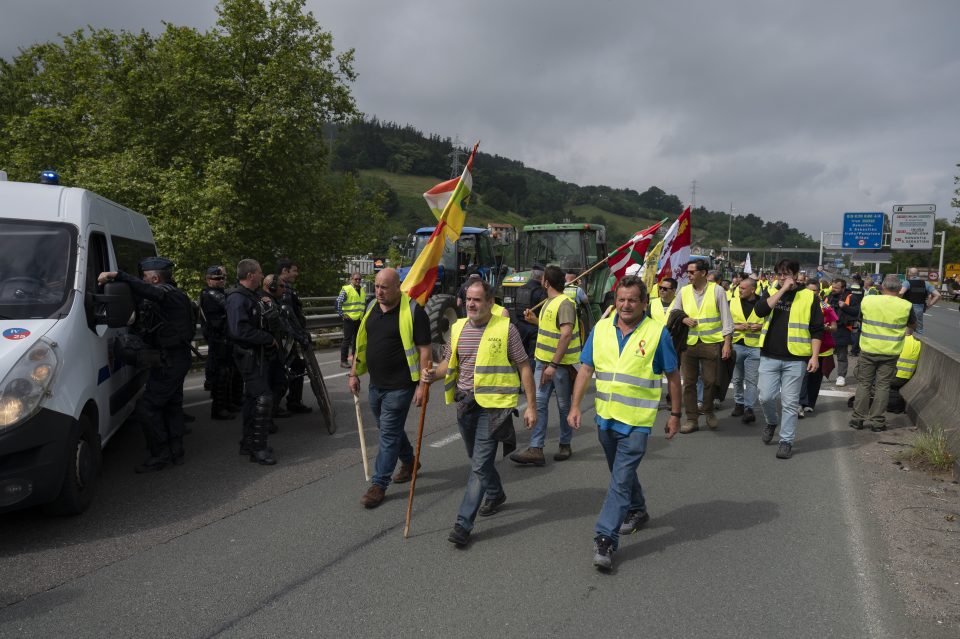
Gari Garaialde—Getty Images
If you were an economic policymaker, what would be your top priority for Europe?
It is crucial that we restore Europe’s competitiveness in the agricultural sector to match leading producers like the U.S. The widespread protests across Europe have highlighted the discontent among farmers, with many European farms struggling to earn a decent living. Years of excessive regulatory bureaucracy have resulted in European farmers having less access to leading innovations in agriculture, weakening their ability to compete. My top priority would be to foster an environment that promotes access to the best technologies and innovations. This would drive sustainable productivity and ensure a level playing field. Building a world-class innovation ecosystem is critical for Europe to thrive in the 21st century.
Being productive
What time do you get up, and what part of your morning routine sets you up for the day?
No matter what time zone I am in, I always wake up early – normally around 4:30 a.m. I like to begin each day with a workout, followed by a light breakfast. I also have a fairly structured routine of reviewing key emails, reading newspapers, and preparing for the day. This helps me get ready for what’s ahead with a clear and focused mindset.
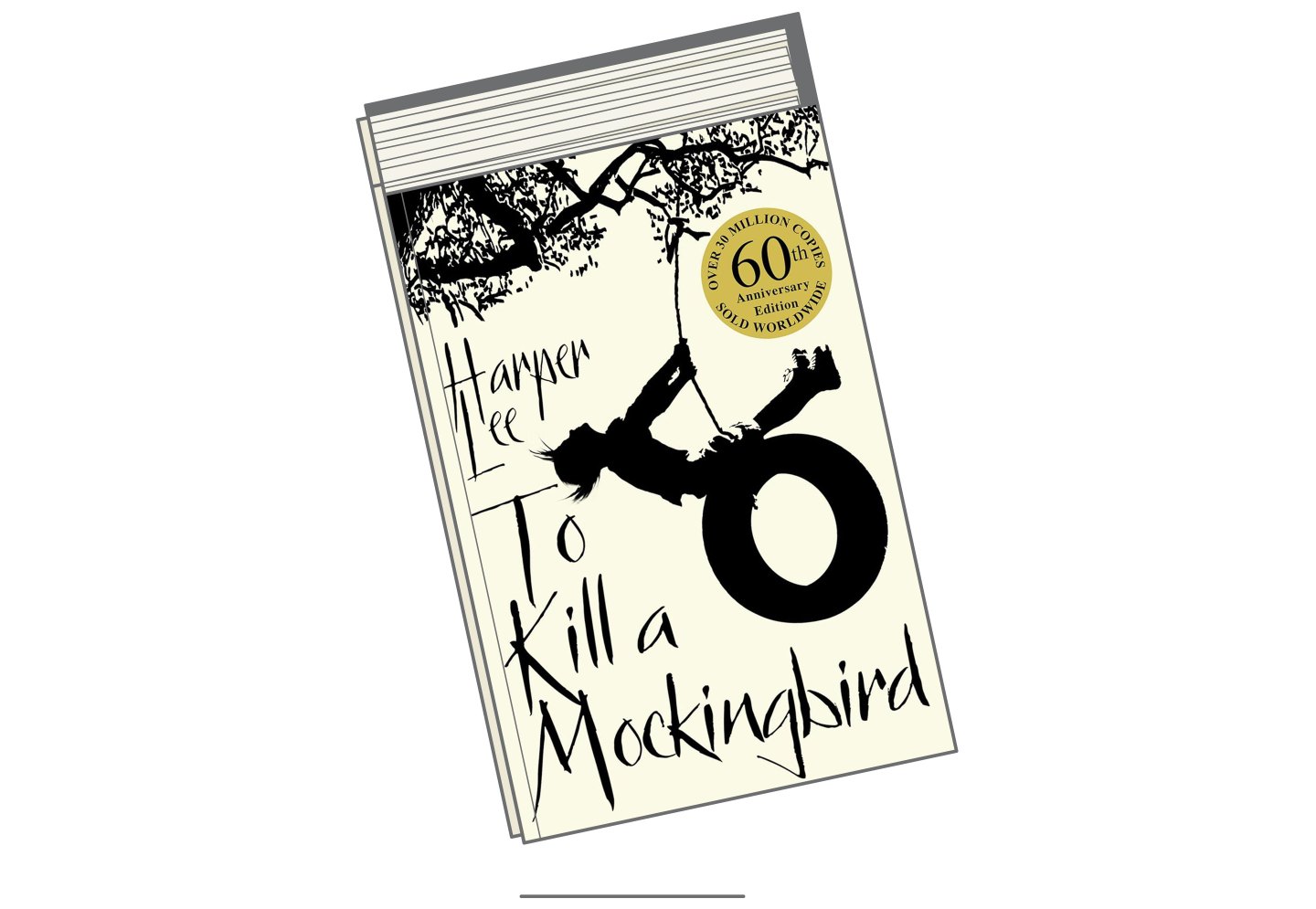
Courtesy of Arrow
What time do you work until? Do you continue sending emails during the night and/or weekends?
With operations in over 100 countries around the world, there is always work to be done, so closing out the day can vary greatly from one day to the next. While I do not have set working hours as such, I try to maintain a healthy balance and I have always prioritized spending time with my family. It’s a balancing act at times, but well worth the effort. During the evenings and weekends, I try to stay physically active and catch up on reading, but inevitably I sometimes send emails, when needed, to follow up on important issues.
What apps or methods do you follow to be more productive?
I use several different news apps to stay up to speed on global issues. I am a heavy user of ToDo and OneNote in coordination with my administrative assistant to keep track of key activities and organize my notes. I have also just started using a reMarkable tablet for electronic note-taking. Like all farmers, I have several weather apps, commodity market apps and keep track of farm activities on CropWise and JD OpsCenter. For fun, I enjoy a good game of chess on the Chess.com app.
“The ReMarkable tablets only have one party trick, but it’s a really good one. The gadgets replicate the look and feel of pen on paper, which makes it easy to handwrite notes or annotate documents.” @trustedreviews https://t.co/ZqTDmVg4bL
— reMarkable (@remarkablepaper) March 17, 2020
Who is on your “personal board”?
My personal board isn’t just made up of colleagues and farming friends in the agricultural world. It’s a diverse group that spans different areas like technology and sustainability. One of the most important parts of my personal board are my kids. They keep me on my toes and help me stay up to date with the latest trends. Together, this group provides me with candid feedback and challenges my thinking, allowing me to take a more well-rounded approach.
Getting personal
What book have you read, either recently or in the past, that has inspired you?
I enjoy reading a wide range of books. I recently read “Churchill: Walking with Destiny” by Andrew Roberts and “Elon Musk” by Walter Isaacson. I have also enjoyed several books on artificial intelligence and quantum computing, including “Quantum Supremacy” by Michio Kaku. Some of the classics I particularly like include: “The Sun Also Rises” and “The Old Man and the Sea” – both by Ernest Hemingway; “Silas Marner” by George Eliot, and of course, Harper Lee’s “To Kill a Mockingbird”, which inspired me to go to law school. As it can be difficult to find time to read longer novels, I have also enjoyed reading short stories, like: “Master and Man” by Leo Tolstoy; “Gooseberries” by Anton Chekhov. Lately, I have been exploring books on soil health and regenerative agriculture; one of the first being “Dirt to Soil” by Gabe Brown.
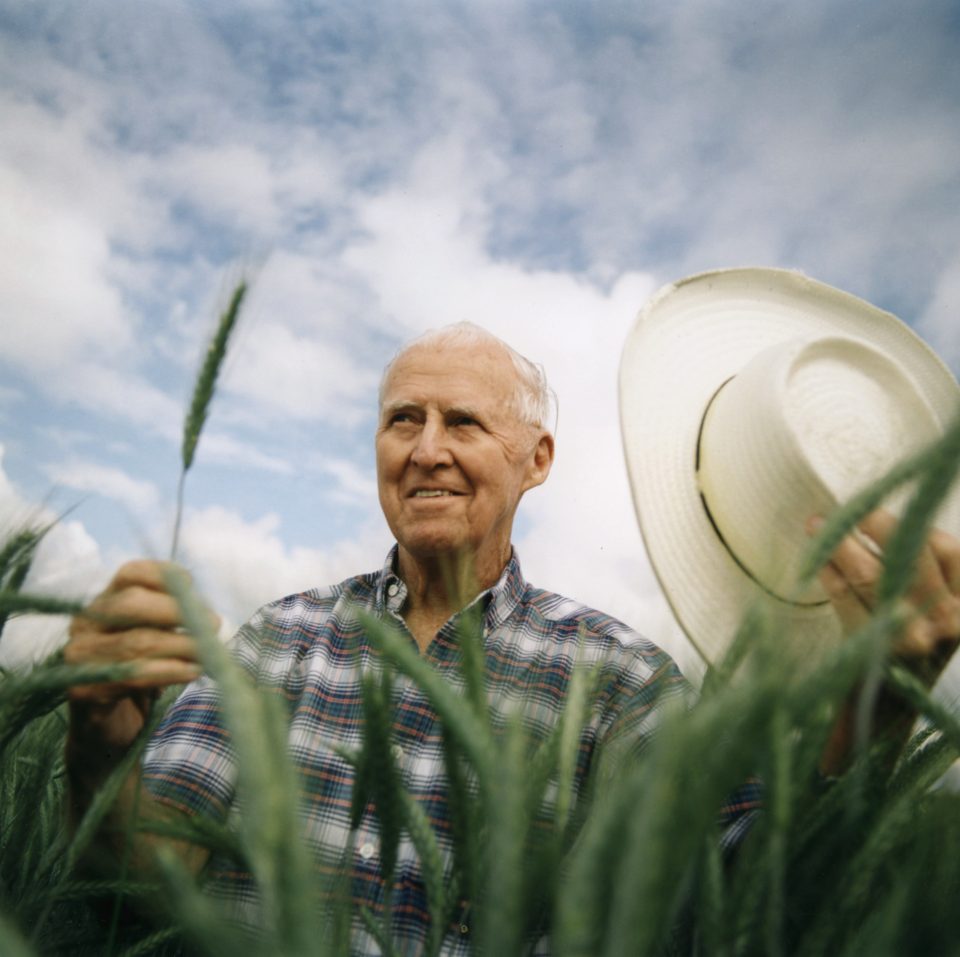
Micheline Pelletier—Sygma/Getty Images
If you could ask your idol one question, who would it be, and what would you ask?
It would be Dr. Norman Borlaug, often considered the father of the Green Revolution. His work on developing high-yielding, disease-resistant wheat varieties saved millions of lives from starvation. I would ask him, “With a growing global population and the challenge of climate change, what innovations or strategies would you recommend to continue increasing food production in a sustainable way?”
As a consumer, what is your favorite company and why?
If you visit my farm, you would see that John Deere is pretty high on this list. My family has been a loyal customer of a wide range of John Deere products for many years. Beyond the core machinery engineering improvements that have been made, I am encouraged by the advancements being made with automation and digital connectivity. The digital ecosystem creates a powerful new connection between traditional machinery companies and agronomy input providers like Syngenta and our CropWise digital platform.
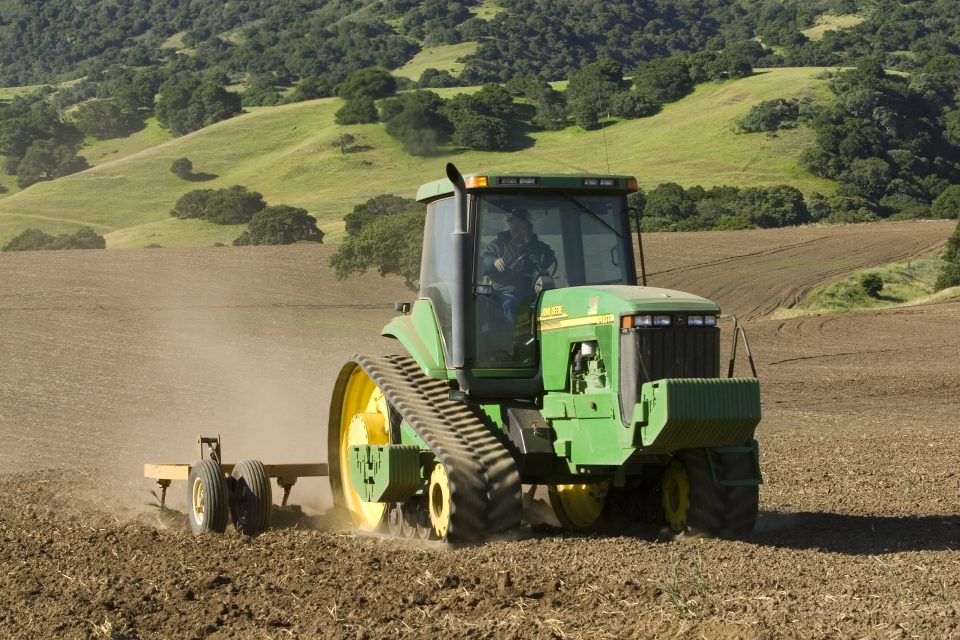
Ed Young—Design Pics Editorial/Universal Images Group/Getty Images
And to end on a lighter note: what was the last costume you wore?
Not so much costumes for me; rather farmer gear and the latest, modern agricultural technology to work the field. I am an early adopter when it comes to innovation.
CEO Agenda provides unique insights into how leaders think and lead, and what keeps them busy in a world of constant change. We look into the lives, minds and agendas of CEOs at the world’s most iconic companies. Dive into our other CEO Agenda profiles.


